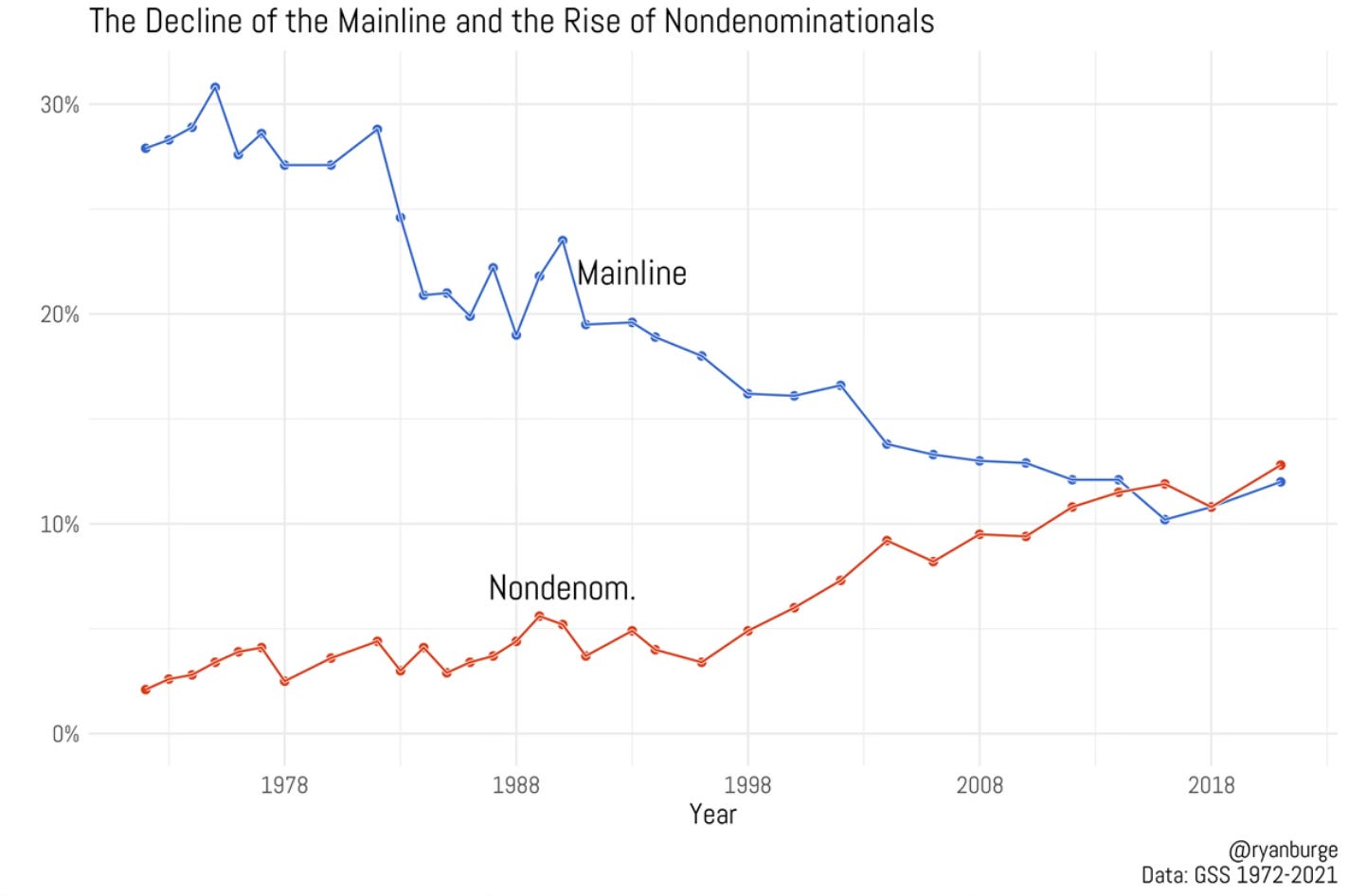For two thousand years, professing Christians have disagreed on points of doctrine, both large and small. The result is three main branches of Christianity: Roman Catholic, Orthodox, and Protestant. The disagreements among Protestants continued after the Reformation, resulting in numerous denominations like the Lutherans, Anglicans, Presbyterians, Baptists, and Methodists. But one thing that Christians agreed on was the definition of marriage– the union of one man and one woman.
The founders of Methodism, John and Charles Wesley would have never considered same-sex marriage to be remotely considered an acceptable Christian ethic. The Methodist Articles of Religion are a revised version of the Church of England’s Thirty-Nine Articles, but both agree that when it comes to the authority of Scripture, “no Christian whatsoever is free from the obedience of the commandments which are called moral” (Article VI, Methodist Articles).
The moral law of God, binding for believers in both the Old and New Testaments, never changes. Neither does our obligation to obey it. The Wesley’s believed that regardless of subjective feelings, cultural trends, or social pressure the moral law of God is binding on every believer, and every church is required to courageously stand against the culture to enforce it. In every church, “nothing is to be ordained against God’s Word” (Article XXII, Methodist Articles).
John Wesley demonstrated remarkable compassion for the poor and marginalized, and no doubt he would instruct us today to show love and compassion to everyone who identifies as one or several of the letters in the LGBTQ acronym. This of course, would be following the clear example of Jesus. But there is no evidence that Wesley would compromise an inch on the clear Biblical teaching on sex and marriage. Not an inch. Wesley wrote nothing about same sex marriage for the same reason he wrote nothing about cellphones. Neither modern invention existed.
As Wesleyan scholar Don Thorsen has noted, Wesley “affirmed the primacy of Scriptural authority. But he also acknowledged the genuine, albeit secondary, religious authority of tradition, reason, and experience.” After reviewing some recent, innovative, and unprecedented interpretations of Scripture that argue for allowing homosexual relationships, Thorsen concludes: “Scripture prohibits homosexual activity.”
After all is said and done, Thorsen writes:
Wesley did not consider experience as self-authenticating. Just because a person claimed to have a revelatory experience, it still needed to come under the scrutiny of Scripture, as well as that of tradition and reason. Our personal experience is ambiguous and can be interpreted in different ways, some of which are deceptive. One's personal experience does not represent the highest religious authority. Experience properly construed is interpreted in the light of biblical revelation. The problem with the homosexuality debates today is that the "testimonies" of some gay and lesbian Christians are considered self-authenticating. The rationalization or acceptance of their behavior is deemed to be valid just because that is what they are experiencing. What is becomes confused with what ought to be —the normative.
And yet, last week the United Methodist Church, in defiance of Holy Scripture, tradition, reason, their founders’ teaching, and their own founding documents, removed its bans on gay clergy and same sex marriages. Those bans represented the clear, apostolic, historic position of all churches in all branches and denominations for two thousand years. They were swept away in a day.
I’ve little doubt that the architects behind the removal of the bans feel good about what they have done. They feel like they are being loving, compassionate, and caring for the marginalized and the outcasts. They feel like they are being like Wesley. But Wesley, with all his faults, recognized the deceitfulness of feelings. He also knew that one of the most loving things we can do for people is to tell them the truth. Sometimes the truth is hard to hear. Sometimes it is unpopular and out of fashion. Sometimes, pastors feel pressure to compromise. But no pastor should be caught by surprise, for Paul warned the church at the beginning:
For the time is coming when people will not endure sound teaching, but having itching ears they will accumulate for themselves teachers to suit their own passions and will turn away from listening to the truth and wander off into myths. (2 Timothy 4:3–4)
The United Methodist Church has been in a death spiral for decades now. In fact, all mainline denominations have two things in common: they affirm same sex marriage and they are dying. Over the past two years, 25% of the more conservative United Methodist Churches voted to disaffiliate from the denomination, the biggest denominational schism ever. At the same time, nondenominational churches who hold to the authority of Scripture and the central tenets of Protestantism are growing.
Perhaps the United Methodist Church feels that by adopting this irrational inclusion, they might save their denomination from its long slide into oblivion. There is no evidence to suggest that this will happen. Why give up your Sunday mornings to go hear things you can hear anywhere else in the world?


Truth is truth….God’s word never changes!
Thank you for your faithfulness and
God's word never changes, even though people may! God Bless